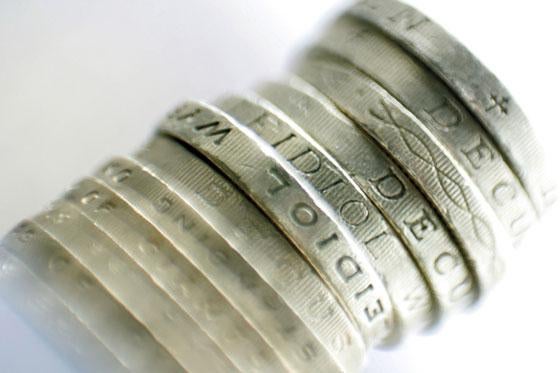
The UK Press receives hundreds of millions of pounds in indirect subsidies from the Government and has one of the highest levels of public funding in Europe, according to a new report.
A study by the Reuters Institute for the Study of Journalism (RISJ) claimed that in 2008 the UK press received £594m of indirect support in the form of VAT-exemptions for copy and subscription sales in the UK.
And it also suggests that the government should look at extending VAT-exempt status to digital news outlets.
Together with the BBC licence-fee, the UK media received a level of government support that outstrips even the likes of France and Italy, countries traditionally considered to have a more ‘interventionist’ approach to state funding of the media.
The study, written by Dr Rasmus Kleis Nielsen with former Reuters editor-in-chief Geert Linnebank, looked at six countries: Finland, France, Germany, Italy, the US, and the UK, and three forms of public sector support for the media: licence-fee funding, indirect support in the form of tax breaks and VAT-exemptions and direct support.
Using figures for all six countries from 2008, in terms of euros-per-capita he found the UK spent €68.2 on public service media and €12.2 on indirect press support, which was behind only Finland (€71.7/€58.9) and Germany (€88.5/€6.4).
The figures were well ahead of the US (€2.6/€2.6) and Italy (€28/€9.4) and slightly higher than France (€48.6/€12.9).
The latter two also give direct funding to newspapers but even when these are taken into account they are still behind the UK, claimed Nielsen.
‘Contrary to received wisdom that paints these countries as having the most expensive system of subsidies, they have only the fourth (France) and fifth (Italy) highest levels of total intervention, considerably lower than the other three European countries,’he said.
He continued: ‘The scale and scope of public support for the media is sometimes surprisingly opaque.
‘While direct funding for both the public service media and private sector media is usually documented in detail, the very considerable extent of indirect support provided primarily for the printed press is less well documented and rarely subject to scrutiny.
‘The arrangements in place have historically helped the press increase its reach, helped smaller publishers survive, and helped bigger ones increase both their profits and their potential to do public good.’
‘Extensive’ media subsidies
Nielsen claimed that all developed democracies in the West – even ‘supposedly free-market orientated ones like the United States’– give ‘extensive’subsidies to the media, be it direct or indirect.
In the US, in 2008 it was estimated that $1.18bn went to various forms of public broadcasting – coupled with a further $1.2bn in tax breaks and reduced postal rates.
Nielsen believes current arrangements discriminate against online-only news outlets, claiming that in the six countries researched ‘there is no public support for online-only organisations”.
‘All the forms of support examined… are inherited from the twentieth century (or before) and heavily orientated towards supporting long-established media organisations like public service broadcasters and private paid newspapers,’he said.
‘While some speculated at the advent of the twenty-first century that these would quickly become irrelevant, this has not been the case. Though many are suffering under severe economic pressures, most remain important and influential.’
He added: ‘Though people do access more and more content online, it is important to keep in mind that the news and entertainment they enjoy there is still in most cases produced by legacy media companies.
‘Therefore, the main beneficiaries of present forms of public support for the media remain of absolutely central importance to the provision of widely accessible accountability journalism in all six countries covered here.’
If newspapers were to begin paying VAT on copy and subscription it could have a potentially disastrous consequences, according to the study.
In the 1990s – when newspaper sales were far healthier than today – research by PricewaterhouseCoopers suggested introducing 6 per cent VAT on British newspapers.
Nielsen argued this would have meant ‘the end of most regional dailies and a drop in circulation for the national press of at least 10 per cent”.
Policy review
The study is calling for a more open approach to government support for the media to avoid discriminating against online news.
‘Every passing year increases the tensions between public service media organisations and their commercial competitors online, every drop in circulation undermines the ability of VAT relief and their like to underpin private sector media companies,’he said.
‘We therefore think it is time to review and renew media policy arrangements and bring them in line with the principles purportedly behind them with the times we live in.’
Nielsen said it could also help iron out some of the anomalies in the current system.
The UK’s biggest-selling regional newspaper – Epress and Star in Wolverhampton – charges £2.34 a week for a newspaper, online and mobile subscription package.
But, as highlighted on its website, ‘due to UK tax laws, VAT applies to the digital-only package, bringing the cost to £2.81 per week. Sorry, blame George Osborne.”
The only publications exempt from VAT under UK law are those that ‘consist of several large sheets folded rather than bound together, and contain information about current events of local, national or international interest'”.
Nielsen added: ‘It is not yet clear whether and how this can be extended to include relevant enterprises primarily based on other platforms.”
Public support for the media:
(Public service media funding; indirect press subsidies; direct press subsidies)
- Finland: €381m; €313m; €0.5m
- France: €e3bn; €801m; €438m
- Germany: €7.3bn; €525m; NA
- Italy: €1.7bn; €560m; €161m
- UK: €4.2bn; €748m; NA
- US: €779m; €804m; NA
Email pged@pressgazette.co.uk to point out mistakes, provide story tips or send in a letter for publication on our "Letters Page" blog






